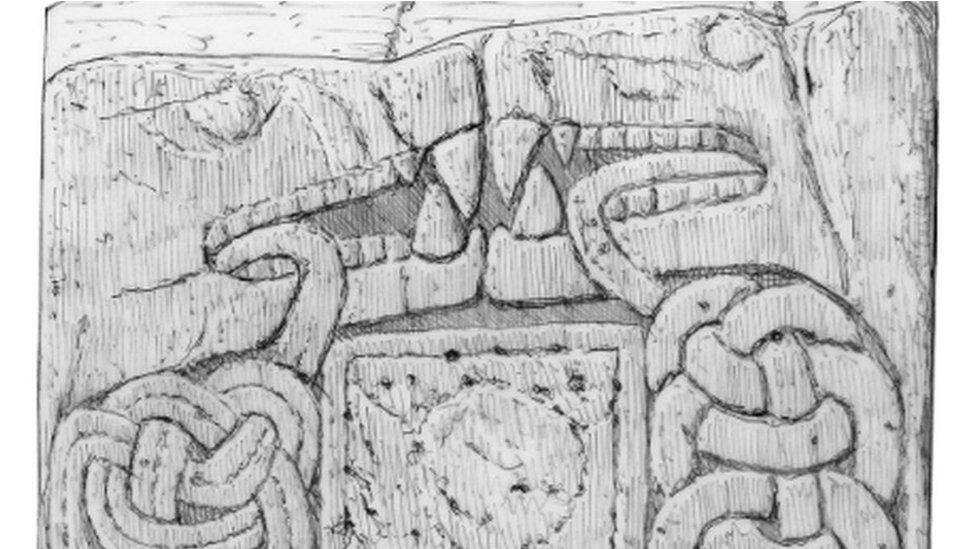'Royal hillfort' revealed by Dunkeld citizen science project
- Published
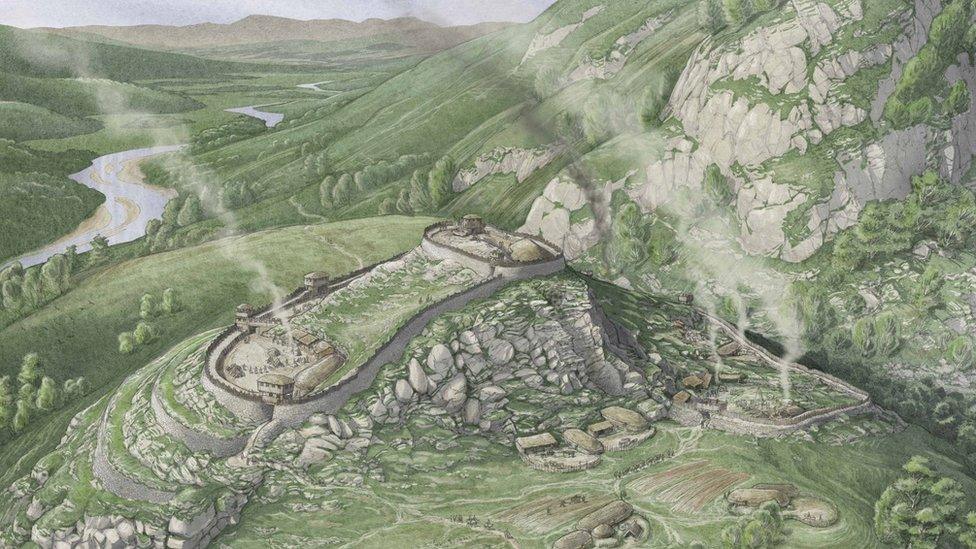
An artist's reconstruction of the hillfort near Dunkeld
What is believed to be a Pictish royal hillfort has been revealed after three years of excavations and analysis of finds from the site.
The existence of King's Seat Hillfort has been known for the last 100 years, but the significance of the site has only now been better understood.
A citizen science project involving teams of volunteers carried out the digs near Dunkeld from 2017-2019.
Finds included items believed to have been made in France and Germany.
Archaeologists said this suggested the Picts who lived at King's Seat had trade links with continental Europe, and provided possible evidence that the site was of "high status".
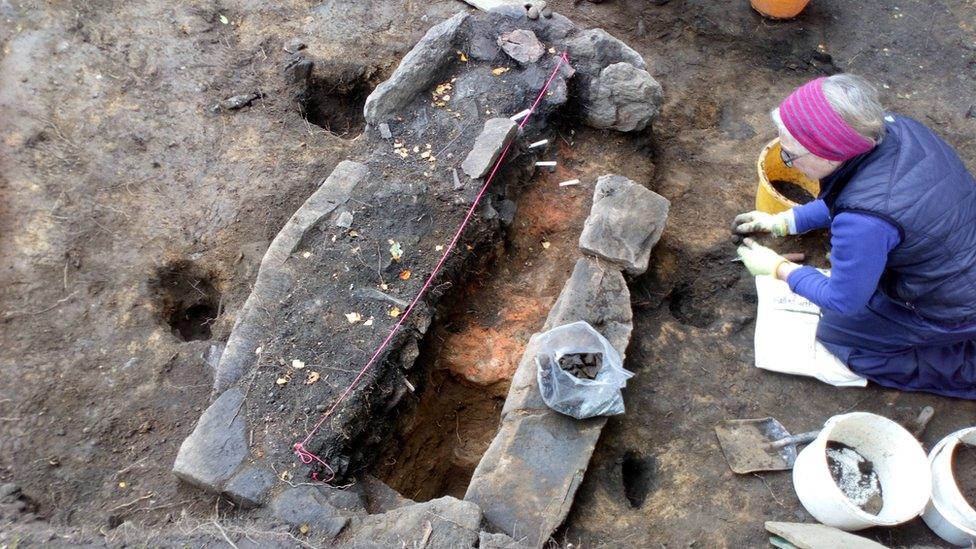
Excavations at the site were made from 2017 to 2019
The hillfort was constructed on a hilltop above a bend in the River Tay at Dunkeld and commanded views over Strath Tay. It was likely to have been occupied between the 7th and 9th centuries.
Excavations suggest "substantial ramparts" built of earth, timber and stone enclosed the hilltop, creating three separate tiers of enclosure with a "citadel" at the top level.
Archaeological work was started in 2017 to better understand the hillfort's story. It was triggered by local resident Dave MacDougall, a member of Dunkeld and Birnam Historical Society.
He contacted Perth and Kinross Heritage Trust for advice on clearing overgrown vegetation, including invasive rhododendrons, from the site.
The three years of excavations led by archaeologists involved local volunteers, including University of the Highlands and Islands students and pupils from the Royal School of Dunkeld, Pitlochry High School, and Breadalbane Academy in Aberfeldy.
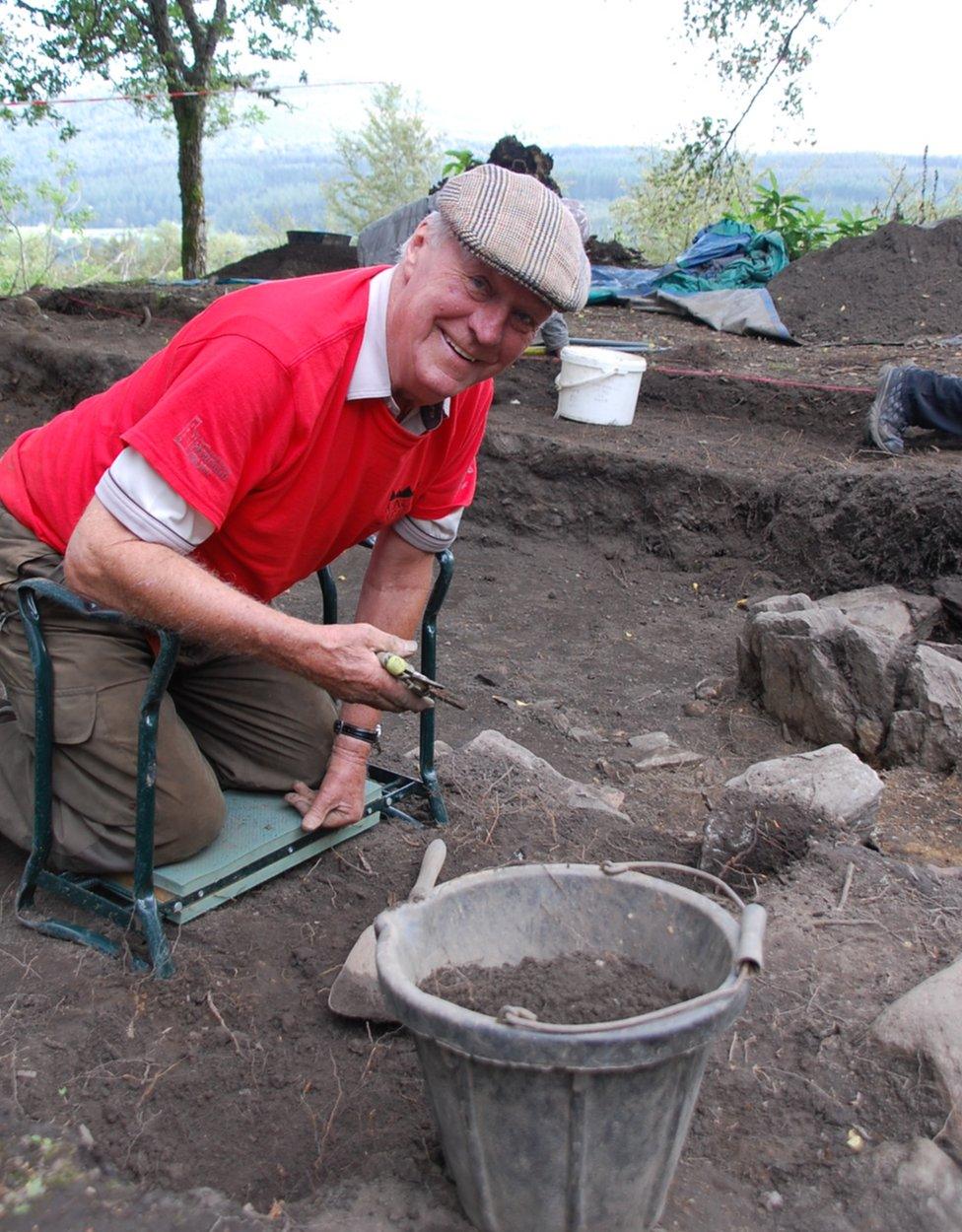
Dave MacDougall at an excavation of the site

Finds included pottery with possible links to a type made in France in the 6th to 7th centuries.
Stone and coloured glass gaming pieces were also uncovered. Also a fragment of a "rare glass vessel" with possible connections to Anglo-Saxon communities from Germany.
Archaeologists said the artefacts were in keeping with other high-status, royal sites of early historic Scotland, including the early Dalriadic capital of Dunadd in Argyll, and the Pictish royal centre of Dundurn near St Fillan's by Loch Earn.
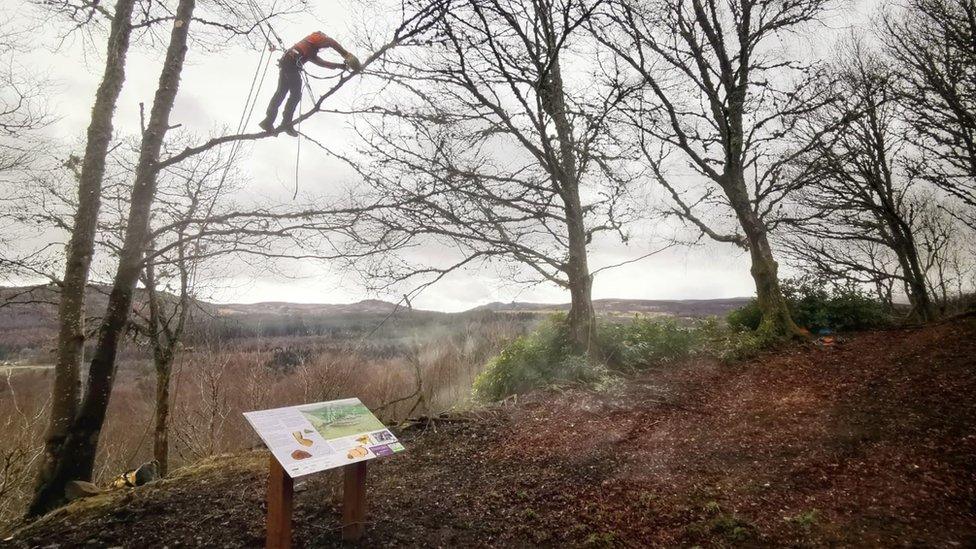
The site has been cleared of overgrown vegetation
Dave Roberts, secretary of Dunkeld and Birnam Historical Society, said: "The dig has been a wonderful and enjoyable experience for all of us volunteers.
"We were able to work alongside knowledgeable and helpful experts to help uncover the fascinating story behind King's Seat.
"This has helped us understand more about the history that has made Dunkeld and Birnam the special place it is today."
More information on King's Seat Hillfort can be found on the PKHT website, external.
- Published7 May 2020
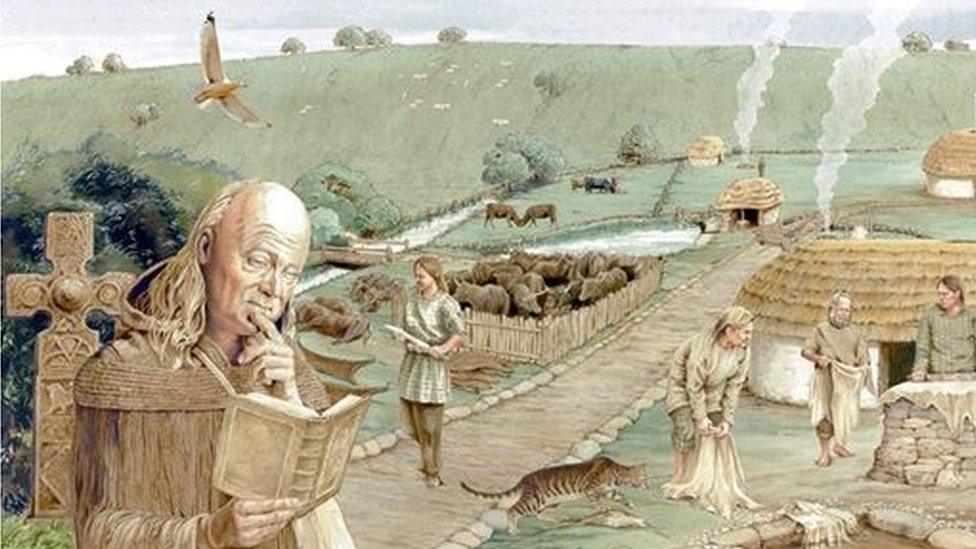
- Published13 February 2020
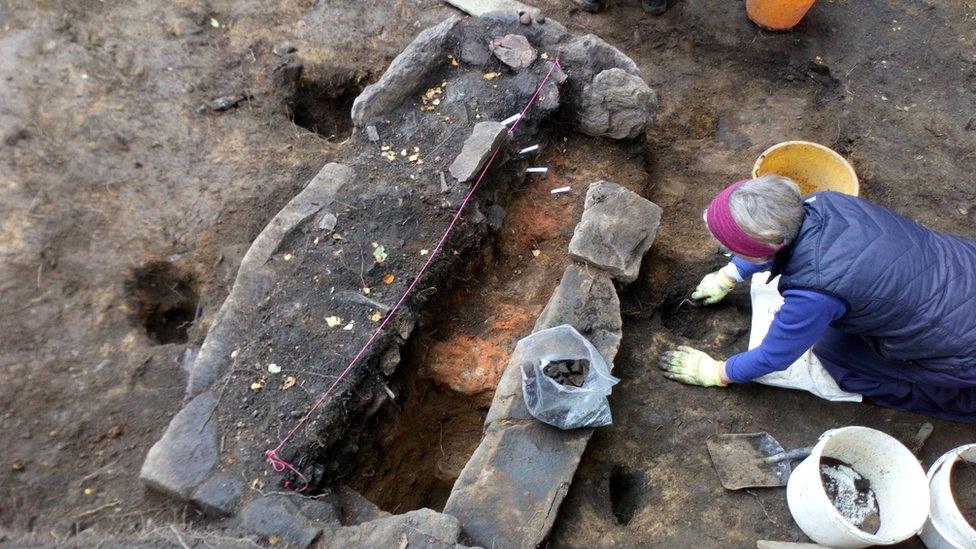
- Published14 October 2019
